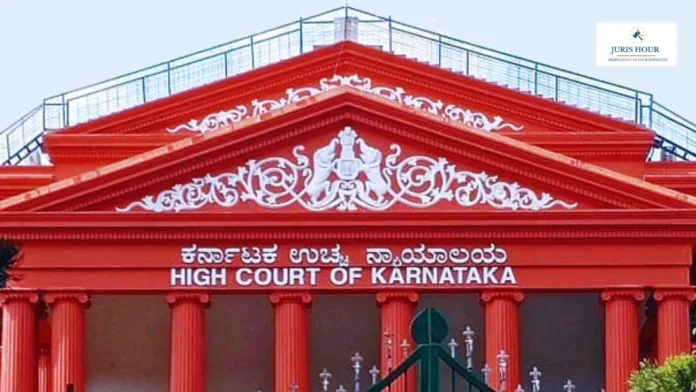The Karnataka High Court has held that the provisions of Bhartiya Nagrik Suraksha Sanhita, 2023 (BNSS) is applicable to criminal proceedings under Good and Service Tax (GST).
The bench of Justice Hemant Chandangoudar has observed that the petitioner-arrestee was arrested against the offence punishable with no more than five years of imprisonment plus fine, but without the issuance of notice of appearance directing him to appear before the officer authorised under Section 69(1) of the CGST Act, and the fact that the petitioner has been incarcerated since 30.1.2025, coupled with the settled bail jurisprudence to exercise discretion in favour of accused.
The bench has granted bail to the petitioner accused of avail inadmissible input tax credit (ITC) without actually supplying the Fast Moving Consumer Goods (FMCG).
The petitioner, a proprietor of two entities—M/s. JMG Enterprises/Heena Enterprises and M/s. Heena International—is alleged by the respondent to have raised fake invoices for purported supplies of goods and services in order to avail inadmissible input tax credit (ITC) without actually supplying the Fast Moving Consumer Goods (FMCG). This scheme purportedly resulted in wrongful ITC to the tune of Rs.5.10 crores through his proprietary firms and further facilitated fictitious transactions with various entities.
The petitioner was alleged to have colluded with various persons to generate fabricated invoices for the supply of FMCG goods without any actual movement of goods or rendering of services. Furthermore, he is accused of diverting the supply of invoiced goods to other entities in the open market without issuing corresponding invoices in the names of the recipient companies, thereby enabling those companies to claim wrongful ITC.
A review of the application for the petitioner’s remand reveals a specific allegation that the petitioner-accused attempted to influence individuals into providing false statements to authorities regarding those who orchestrated the fake invoicing scheme, and further, that he destroyed evidence by deleting WhatsApp messages, thus misleading or hampering the investigation.
The petitioner contended that the petitioner’s arrest is vitiated on the ground of non-compliance with Section 35(3) of BNSS, which mandates the issuance of a notice of appearance to any person accused of an offence punishable with imprisonment of up to seven years.
The petitioner contended that since the petitioner was deprived of an opportunity to appear before the investigative authorities, his arrest under Section 69 of the CGST Act, 2017, cannot be permitted as a justifiable restriction on liberty under the law. This non-compliance amounts to a violation of the petitioner’s fundamental right under Article 21 of the Constitution. Therefore, the petitioner has invoked the constitutional writ remedy and sought the relief of quashing the remand order under this Court’s inherent powers.
The department contended that the petition is not maintainable under Section 528 of BNSS, 2023. A review of the memorandum of the petition fails to reveal any grounds warranting a writ petition under Articles 226 and 227, so as to grant extraordinary constitutional remedy. The petition is not maintainable because the offence is registered under the CGST Act, 2017, and no order of remand was issued under the governing Sanhita or BNSS.
The case at hand involves a complaint of wrongful availment of ITC by the petitioner to the tune of INR 5.10 crores only, and the petitioner has been in remand since the date of his arrest on 30.01.2025.
The CGST, Act 2017 provides for assessment under Section 59, provisional assessment under section 60, scrutiny of returns under Section 61, assessment of persons who do not file returns under Section 62, assessment of unregistered persons under Section 63, summary assessment in special cases under Section 64, and audit under Sections 65 and 66. It is undisputed that while a prosecution can be launched prior to conduct of summary assessment or special audit determining liability, no offence can be said to be made out in respect of purported discrepancies in the furnished returns, until completion of the said audits.
The court partly allowed the petition by granting Bail to the Petitioner accused subject to execution of a personal bond for a sum of Rs.1,00,000 with one local surety for the likesum to the satisfaction of the Trial Court within a period of two weeks from the date of his release
Case Details
Case Title: Viral Narendra Gosalia Versus The Senior Intelligence Officer
Case No.: Writ Petition No. 6016 Of 2025 (Gm-Res)
Date: 13/03/2025
Counsel For Petitioner: MRC Manohar
Counsel For Respondent: Madhu N. Rao
Read More: DG Systems & DM Issues Procedure For Import Through Personal Carriage

